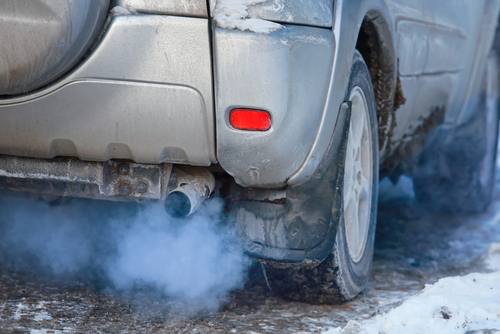What You Should Know About Carburetors.
First things first, according to Webster's Dictionary a carburetor is a device use by a gasoline internal combustion engine to control and mix air with fuel entering the engine. Carburetors have been an integral part of automotive engines for decades, though their use has become less common with the widespread adoption of fuel injection systems. That said, many older vehicles still rely on carburetors to mix air and fuel for combustion.
The experts at Meineke in Mechanicsburg explore some common car carburetor problems and how to spot them.
- Poor Fuel Economy. One sign of a carburetor problem is poor fuel economy. If your car is suddenly guzzling gas like there's no tomorrow, it could be due to a carburetor issue. A carburetor that's not properly mixing the air and fuel can result in a rich fuel mixture, causing excessive fuel consumption.
- Rough Idling. A rough idle is another common symptom of carburetor problems. If your engine is idling unevenly or even stalling at stoplights, the carburetor may be at fault. This can be caused by clogged jets, a dirty air filter, or incorrect carburetor adjustments.
- Difficulty Starting. Difficulty starting your car, especially when the engine is cold, can indicate a carburetor problem. A malfunctioning choke mechanism or a carburetor that's not delivering the right amount of fuel during startup can make your engine hard to start.
- Black Smoke from the Exhaust. We've all seen this before; if you notice black smoke coming from a car's exhaust pipe, it's a clear sign that the carburetor is delivering too much fuel. This can be caused by a stuck float, a clogged air filter, or a faulty fuel mixture adjustment. It not only wastes fuel but also contributes to pollution.
- Engine Misfires. Engine misfires, where the engine runs unevenly or stumbles during acceleration, can also be attributed to carburetor issues. An improperly adjusted carburetor can lead to a lean or rich fuel mixture, causing misfires and reduced engine performance.
- Hesitation During Acceleration. Hesitation or stumbling when you press the accelerator pedal is often a sign that your carburetor is not working properly. The cause could be a faulty accelerator pump or a clogged jet, preventing the carburetor from delivering the right amount of fuel during acceleration.
- Stalling. Stalling is another common symptom of carburetor problems, especially during sudden stops or when going from deceleration to acceleration. This can be caused by a variety of carburetor issues, including fuel supply problems, vacuum leaks, or incorrect adjustments.
- Sooty Spark Plugs. Are your spark plugs covered in black soot? This could be a sign that the engine is running too rich. A malfunctioning carburetor can cause this by delivering an excessive amount of fuel to the combustion chambers.
Keep an eye out for these common symptoms, and if you suspect a carburetor issue, it's best to consult a professional mechanic who specializes in carburetor repair and maintenance. Meineke in Mechanicsburg can help if your run into any problems. You can call at: (844) 831-7614 Identifying and addressing carburetor problems in your car is essential to maintain its performance and fuel efficiency, especially if you own an older vehicle.
MEINEKE CAR CARE | LOCAL CAR CARE | LOCAL MECHANIC | MECHANICSBURG CAR CARE | MECHANICSBURG AUTO CARE | CAR CARE NEAR ME | OIL CHANGE NEAR ME | CARBURETOR
#MEINEKECARCARE #LOCALCARCARE #MechanicsburgCarCare #MechanicsburgAUTOCARE #CarCareNearMe #MeinekeCares #Meineke #OilChangeNearMe #OilChange #Carburetor


